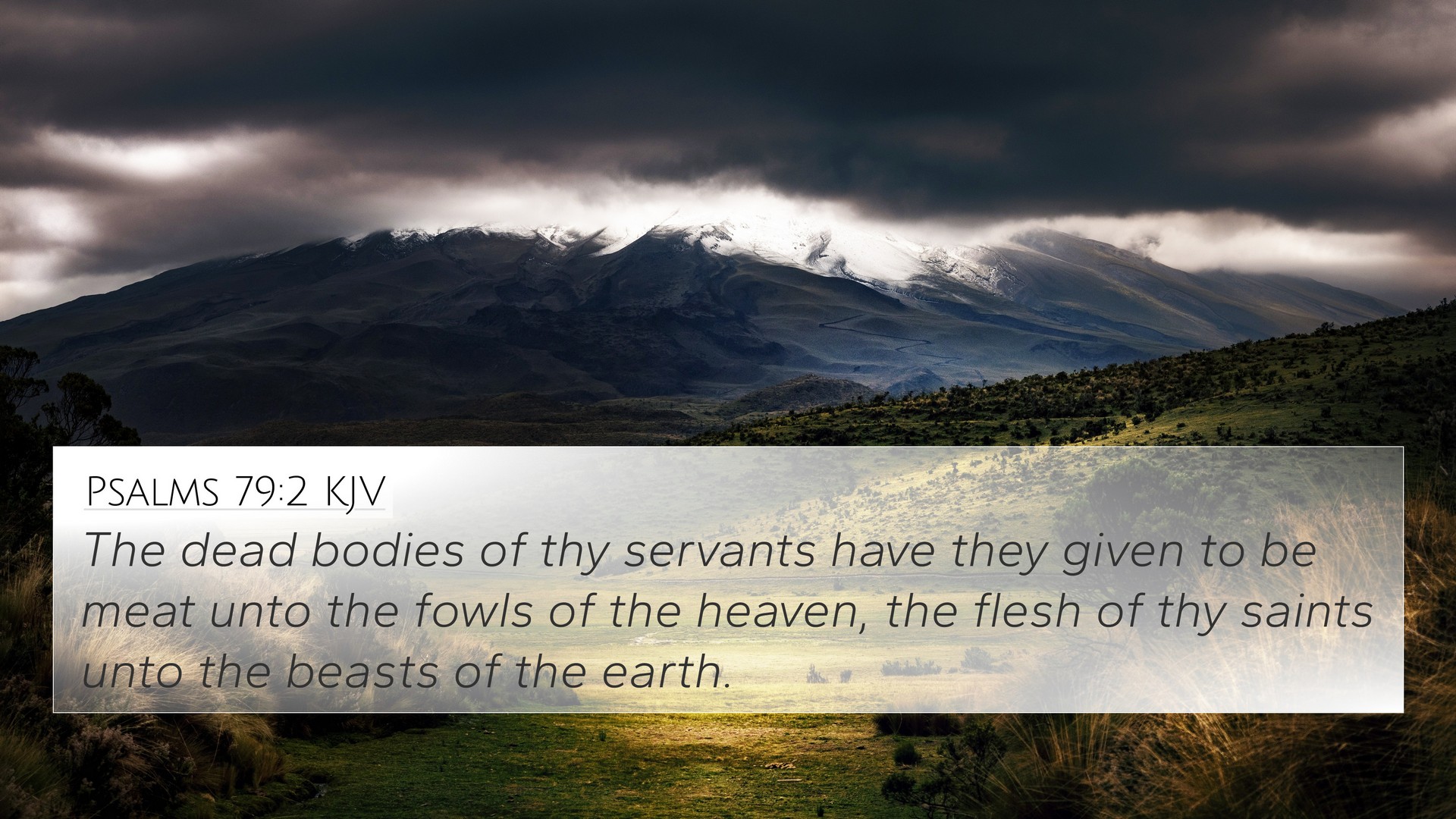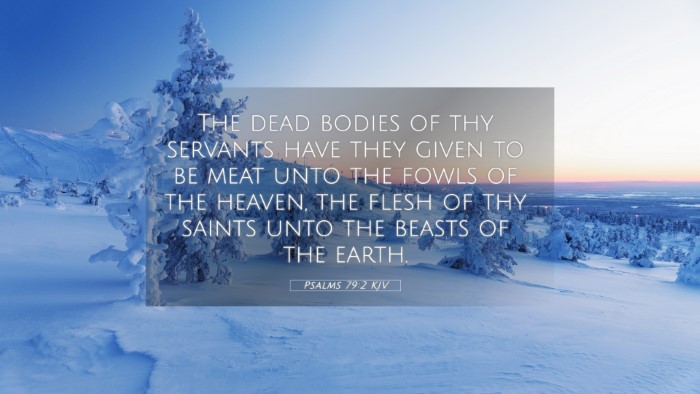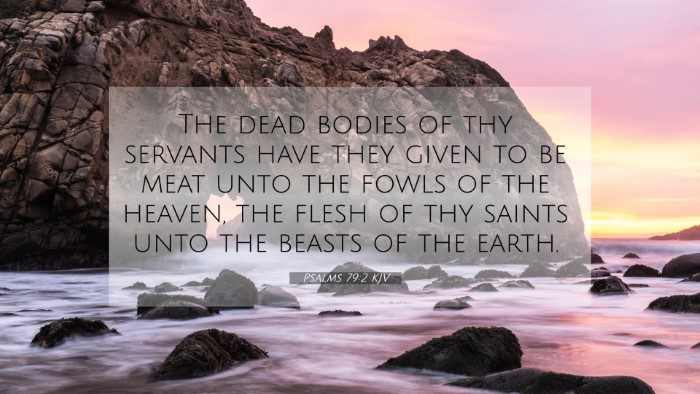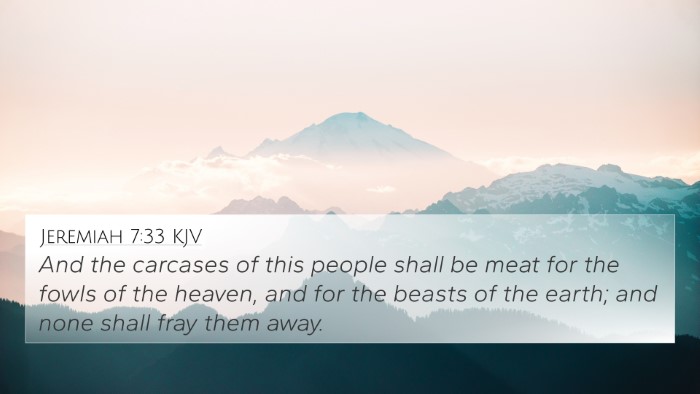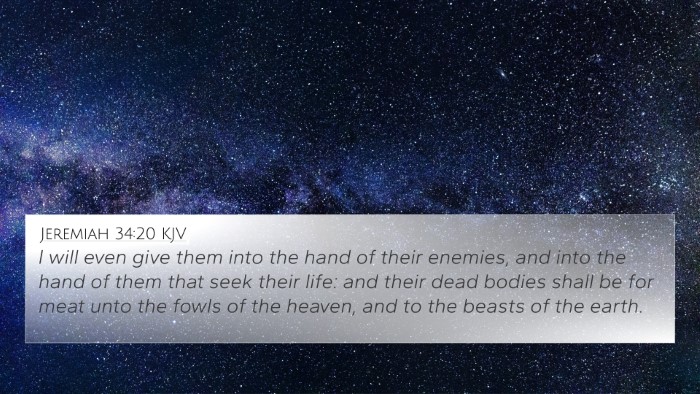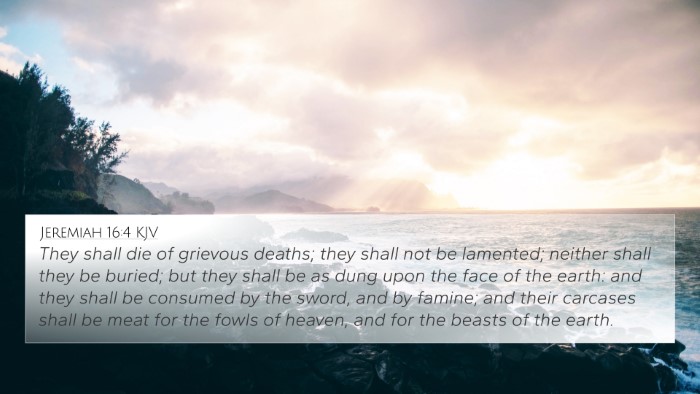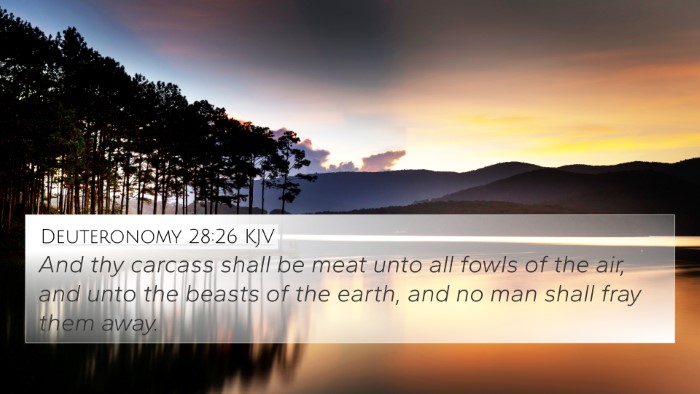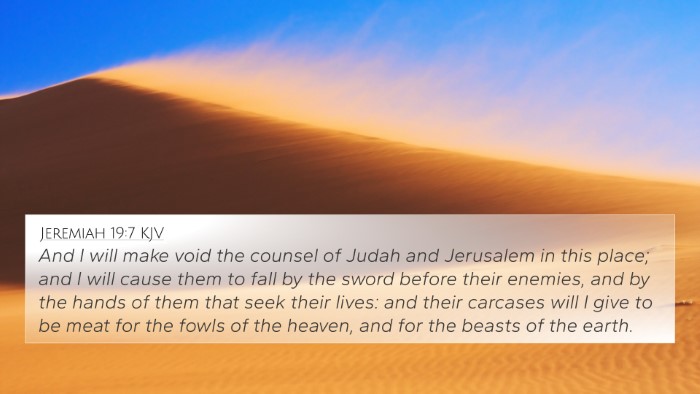Psalms 79:2 – Understanding the Verse
Bible Verse: Psalms 79:2 - "The dead bodies of your servants they have given to be meat unto the fowls of the heaven, the flesh of your saints unto the beasts of the earth."
Overview
This verse from Psalms reflects a profound moment of despair experienced by the psalmist, lamenting the death and desecration faced by the faithful. It conveys a poignant plea to God concerning the treatment of His people in times of suffering and humiliation.
Contextual Meaning
Understanding Psalms 79:2 is essential within the broader context of Psalm 79, which laments the destruction of Jerusalem and the suffering of its people. The psalmist addresses God, expressing grief over the dishonor done to His people, who are considered His servants and saints.
Commentary Insights
Matthew Henry's Commentary
Henry emphasizes the expression of deep sorrow for the treatment of God’s people. He notes that the imagery of dead bodies offers a stark portrayal of defeat and loss. The fowls and beasts represent the utter disgrace and helplessness that has fallen upon the faithful, contrasting with the honor they should rightfully hold.
Albert Barnes' Commentary
Barnes elaborates on the prophetic dimension of this lament, stressing the corporate nature of God’s people suffering under foreign oppression. He underscores that the bodies being given to birds and beasts symbolizes not just physical desecration, but a spiritual affront against their identity as God's chosen ones.
Adam Clarke's Commentary
Clarke reflects on the historical context, suggesting that this verse captures the implications of sin and judgment upon Israel. He connects the verses to the larger theme of the invocations for God's mercy and justice amid their plight. Clarke also examines various translations to convey the gravity of the situation and its spiritual significance.
Thematic Connections
This verse connects deeply with themes of lament, suffering, and divine justice, showcasing a vivid emotional landscape where God's people cry out for deliverance and adequate representation in their darkest hours. The following verses share similar themes or sentiments:
- Psalms 44:11-14 - "Thou hast given us like sheep appointed for meat; and hast scattered us among the heathen."
- Jeremiah 16:4 - "They shall die of grievous deaths; they shall not be lamented, neither shall they be buried..."
- Lamentations 1:7 - "Jerusalem remembered in the days of her affliction and of her miseries all her pleasant things..."
- Psalms 79:3 - "Their blood have they shed like water round about Jerusalem; and there was none to bury them."
- Ezekiel 39:17 - "And, thou son of man, thus saith the Lord God; Speak unto every feathered fowl..."
- Matthew 24:28 - "For wheresoever the carcass is, there will the eagles be gathered together."
- Revelation 19:17 - "And I saw an angel standing in the sun; and he cried with a loud voice, saying to all the fowls that fly in the midst of heaven..."
Bible Cross-Referencing Techniques
To gain a better understanding of scripture, tools for cross-referencing can greatly aid in studying the interconnections between verses. Here are some methods and resources:
- Bible Concordance: Use a Bible concordance to find other verses related to key terms.
- Bible Cross-Reference Guide: Utilize a guide specifically designed to illustrate the connections.
- Cross-Reference Bible Study: Engage in structured study sessions focusing on themes.
- How to Use Bible Cross-References: Explore strategies for incorporating cross-references in personal study.
- Bible Reference Resources: Utilize various published resources that provide insights and cross-referencing.
Conclusion
Psalms 79:2 serves as a powerful reflection of the suffering endured by the faithful and echoes the longing for divine justice and mercy. By considering complementary scriptures and employing cross-referencing methods, readers can deepen their understanding of this poignant lament and its relevance to both historical and contemporary faith struggles.
